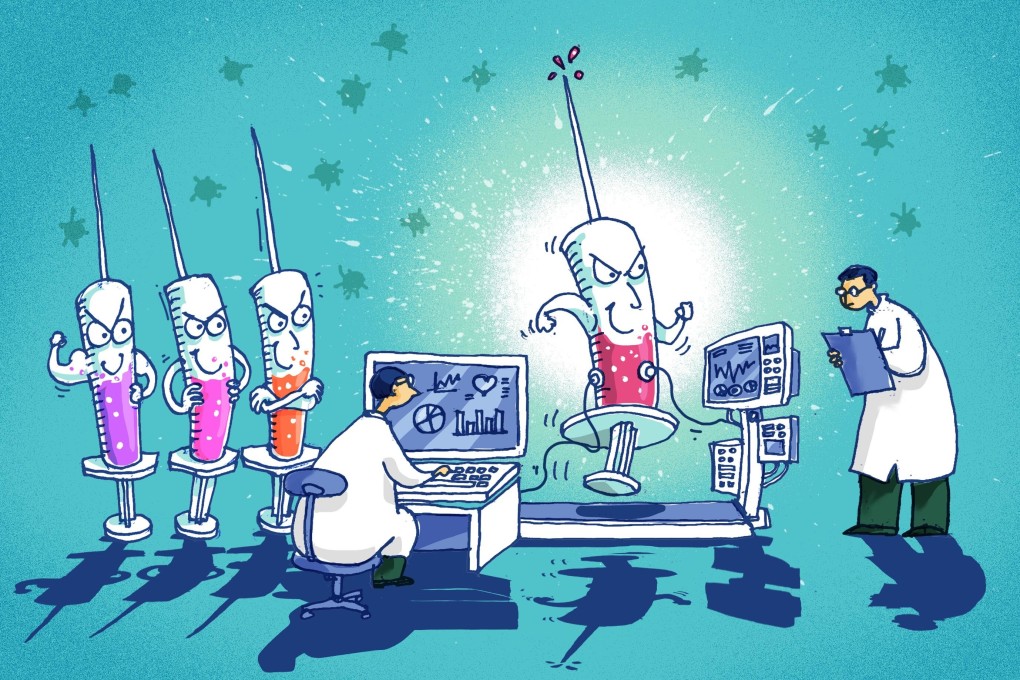Hopes for a Covid-19 vaccine in early 2021, but that’s only the start of the story, experts say
- Six candidates have reached the final stage of clinical testing, but even if they prove effective, there will still be questions to answer
- From successful trials, ‘it’s a long way … to long-term, protective immunity’, Imperial College London professor says

That gives hope to the possibility that a vaccine could hit the market by early next year.
A possible concern is that most of the candidates, although using different technologies, have adopted a similar immunology strategy to express the spike protein of SARS-CoV-2 in the hope of inducing neutralising antibodies to stop it infecting healthy cells.
If the first candidates prove to be effective, the chances of the others succeeding is high. But the opposite also applies, according to virologists.
The strategy to target the spike protein is based on previous vaccine research for Sars (severe acute respiratory syndrome) and Mers (Middle East respiratory syndrome). In animal trials and earlier stage human trials all of the leading Covid-19 vaccine candidates produced satisfactory results in T-cell responses and neutralising antibodies.
However, only the final stage of clinical trials, which typically involves 20,000 to 40,000 volunteers in areas of high transmission, will tell if they can provide an effective barrier to Covid-19.